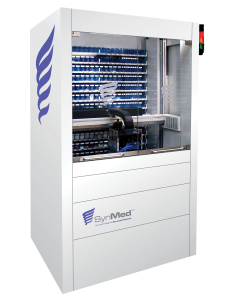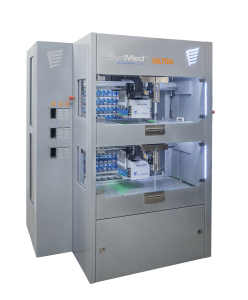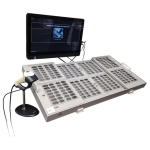Non-adherence to medication is a global problem that causes both clinical and economic issues. For patients, it can lead to worsening of the disease and the development of complications. This increases the risk of hospitalization and death. A U.S. study published in the Annals of Internal Medicine® estimates that lack of adherence to prescribed treatments is the cause of at least 10% of hospitalizations and 125,000 deaths per year. (1) In addition to these effects on patient health, non-adherence costs health care systems millions (between $100 and $289 million annually for the U.S. health care system). (1)
In Canada, 70% of patients do not take their medications as directed by their doctor. (2) In general, non-adherence rates increase with the number of medications prescribed. (2) There are many reasons for this, including individual factors such as vision difficulties, difficulty using hands to pick up objects, or memory problems. (3)
Pharmacists, who dispense medications to patients, play a key role in medication adherence. According to the Saskatchewan College of Pharmacy Professionals, it is important for pharmacists to discuss with patients their ability to adhere to the given treatment. If necessary, they should develop adherence aids. (4)

Blister cards can be single or multi-dose, weekly or monthly. Each cell of the card contains all the medications to be taken on a certain day, at a specific time. This allows patients to remain independent and better manage their medication intake by better tracking their consumption and doses.
Tracey, whose 88-year-old mother suffers from epilepsy and memory problems, talked about the usefulness of this system, saying that “the blister packs were the only way we could know if she had taken her medication at the right time.” (5) She added: “handing out seven individual boxes with different instructions on each one was totally unworkable and – quite frankly – dangerous.” (5)
In addition to numerous patient testimonials, studies have shown the benefits of blister card medication delivery. For example, a study conducted on patients aged 65 and over showed a significant and sustained increase in adherence from 61% to 96% following drug dispensing in blister cards. The proportion of people qualified as compliant (taking more than 80% of their medications) was multiplied by 16. (6)
While this solution is effective and well-received by patients, it can be difficult for pharmacies to implement due to staff shortages, costs, or stress placed on pharmacy technicians.
To help you offer this medication adherence solution to your patients, Synergy Medical has developed SynMed technology: Canadian-based automation solutions for all volumes of blister card production, designed for rapid production to improve pharmacy profitability and patient safety.

The SynMed XF was developed over four years before being introduced to the market in 2008. It uses patented “pick-and-place” technology to fill blister cards accurately and efficiently.
Its features include:

The SynMed ULTRA is a state-of-the-art, ultra high capacity pharmacy automation solution. It also uses patented “pick-and-place” technology.
Its features include:

The SynMed Assist is used with all SynMed automation systems. It secures the positioning of exception drugs by hand, prior to automatic filling. This technology can also be used as a stand-alone solution to secure the production of small volumes of blister cards.
In addition to their own features, all SynMed systems:
Victory House
400 Pavilion Drive
Northampton, UK
NN4 7PA
Telephone : England, Scotland & Wales : 0203 903 6318 – Option 1
Northern Ireland & Eire : 0800 700 10 701 – Option 1
| Cookie | Duration | Description |
|---|---|---|
| cookielawinfo-checkbox-analytics | 11 months | This cookie is set by GDPR Cookie Consent plugin. The cookie is used to store the user consent for the cookies in the category "Analytics". |
| cookielawinfo-checkbox-functional | 11 months | The cookie is set by GDPR cookie consent to record the user consent for the cookies in the category "Functional". |
| cookielawinfo-checkbox-necessary | 11 months | This cookie is set by GDPR Cookie Consent plugin. The cookies is used to store the user consent for the cookies in the category "Necessary". |
| cookielawinfo-checkbox-others | 11 months | This cookie is set by GDPR Cookie Consent plugin. The cookie is used to store the user consent for the cookies in the category "Other. |
| cookielawinfo-checkbox-performance | 11 months | This cookie is set by GDPR Cookie Consent plugin. The cookie is used to store the user consent for the cookies in the category "Performance". |
| viewed_cookie_policy | 11 months | The cookie is set by the GDPR Cookie Consent plugin and is used to store whether or not user has consented to the use of cookies. It does not store any personal data. |